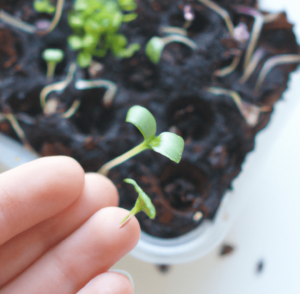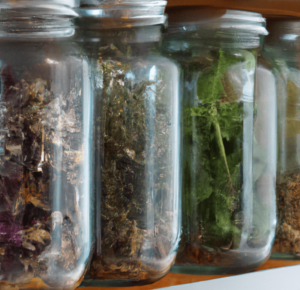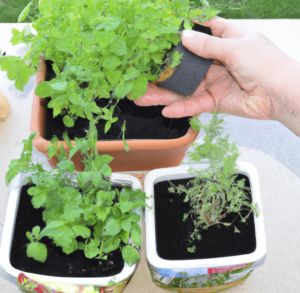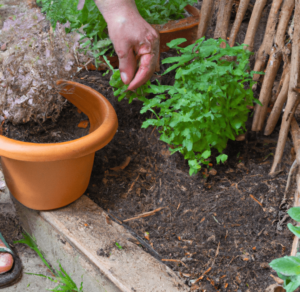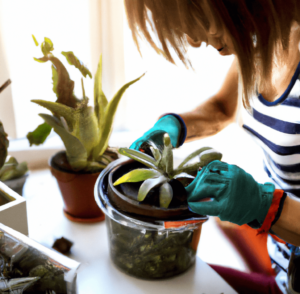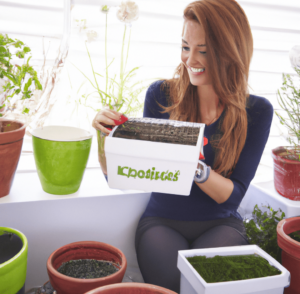Companion planting gardening is a type of gardening where plants are grown together in close proximity to each other to provide mutual benefits. This type of gardening has been practiced for centuries and can help to improve the health and productivity of plants in the garden.
One of the key benefits of companion planting gardening is that it allows plants to support each other in their growth and development. For example, certain plants, such as beans, can provide support for other plants, such as tomatoes, by growing up their stems. This can help to keep the plants upright and prevent them from falling over.
Another benefit of companion planting gardening is that it can help to improve soil health by introducing different plants into the ground. This can help to increase the diversity of microorganisms in the soil, which can help to improve the overall health of the plants in the garden.
In addition, companion planting gardening can also help to deter pests and improve the overall health of vegetable plants. For example, planting certain herbs, such as basil or mint, near vegetable plants can help to repel pests and improve the overall health of the plants.
Overall, companion planting gardening is a beneficial and sustainable way to grow plants in the garden. By planting different plants together, gardeners can create a diverse and healthy ecosystem in their own backyard.
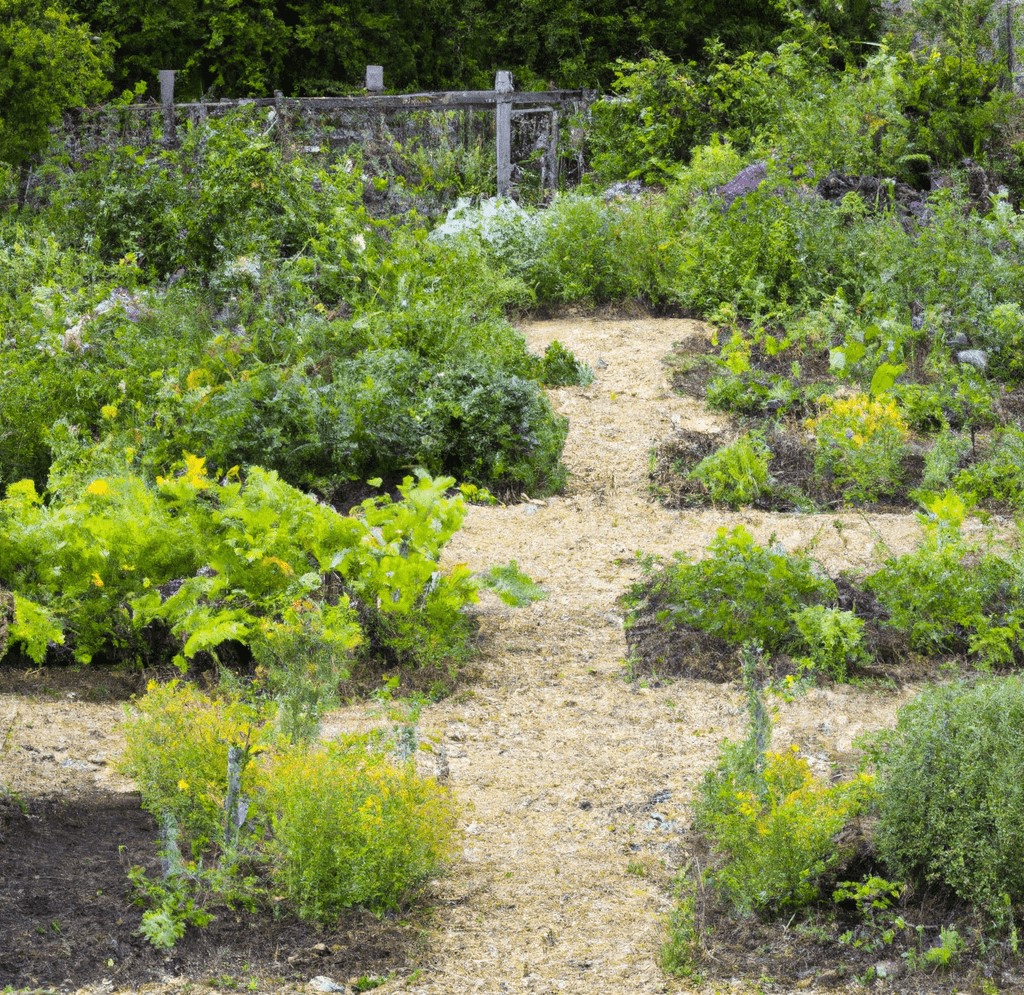
Vegetables
Vegetables are a type of plant that are grown for their edible parts. These parts include the leaves, stems, roots, and fruits of the plant.
When planting vegetables, it is important to choose the right location and soil conditions to ensure the plants will grow well. Squash, tomatoes, and other vegetables need plenty of sunlight and well-drained soil to thrive.
Insects can be a problem for vegetable gardens, as they can damage the plants and reduce the yield. To prevent insect damage, some gardeners use insecticides, while others use natural methods such as companion planting gardening or attracting beneficial insects to the garden.
The flowers of vegetable plants are not just decorative – they are also important for the production of fruits and seeds. For example, the flowers of squash plants must be pollinated in order to produce squash. Some vegetables, such as lettuce and spinach, are grown for their leaves rather than their fruits or seeds, and in these cases the flowers may be removed to encourage leaf growth.
Benefits of Companion Planting Gardening with Squash
Companion planting gardening is a technique that involves strategically planting different species of plants together in order to enhance their growth and yield. When it comes to growing squash, companion planting can provide a range of benefits, including the following:
- Increased ground coverage: Squash plants can take up a lot of space in the garden, so planting them alongside other species can help to maximize the use of the ground. This can be especially useful if you have a small garden or are growing squash in containers.
- Improved pollination: Squash plants rely on bees and other pollinators to transfer pollen from one flower to another, which is necessary for the plants to produce fruit. Planting flowering plants alongside squash can help to attract pollinators to the garden, improving the chances of successful pollination.
- Natural pest control: Squash plants are often susceptible to pests, such as aphids and squash bugs. Companion planting with plants that are known to repel these pests, such as marigolds and nasturtiums, can help to reduce the risk of infestation.
- Nutrient uptake: Squash plants are heavy feeders, which means they require a lot of nutrients to grow and produce fruit. Planting them alongside legumes, such as beans and peas, can help to improve the uptake of nitrogen from the soil, which is an essential nutrient for squash plants.
Overall, companion planting gardening with squash can provide a range of benefits, including increased ground coverage, improved pollination, natural pest control, and improved nutrient uptake. By carefully selecting the right companion plants, gardeners can help to maximize the growth and yield of their squash plants.
Companion Planting Gardening Technique
Companion planting gardening is a gardening technique in which different plants are grown together for their mutual benefit. This can include improving the health and yield of the plants, deterring pests, or attracting beneficial insects.
One classic example of companion planting gardening is the combination of corn and peas. Planting peas near corn can provide a natural support for the pea plants to climb, improving their growth and yield. In turn, the deep root systems of the corn can help to fix nitrogen in the soil, improving the health of both plants.
There are many other benefits to companion planting, including reduced pest problems and improved soil health. Some gardeners even believe that certain plant combinations can enhance the flavor of the crops. Experimenting with different plant combinations can help to maximize the benefits of companion planting in your own garden.

Flowers and Gardening in Companion Planting Garden
Gardening is a popular hobby that involves growing plants, including flowers. Many people enjoy gardening because it allows them to be creative and to grow beautiful plants that they can enjoy in their own home or yard.
Planting flowers is a common gardening activity that can add color and beauty to any space. There are many different types of flowers that can be grown in a garden, including annuals, perennials, and shrubs. Some popular flowers include roses, sunflowers, and daisies.
In addition to flowers, many people also grow vegetables in their gardens. Vegetables are a type of plant that is grown for its edible parts, such as its leaves, roots, or seeds. Some common vegetables that are grown in gardens include beans, tomatoes, and cucumbers.
Planting flowers and vegetables in a garden can be a fun and rewarding activity. It can also provide fresh, healthy food for you and your family to enjoy. Whether you are a beginner or an experienced gardener, there is always something new to learn and discover when it comes to growing plants.
Gardening
Gardening is the practice of growing and cultivating plants, such as vegetables, fruits, and flowers. Gardening can be done on a small scale, such as in a backyard or on a balcony, or on a larger scale, such as in a community garden or on a farm.
Planting is a key aspect of gardening, as it involves choosing the right plants for the space and conditions, preparing the soil, and placing the plants in the ground or in containers. Companion planting gardening is a type of planting in which different plants are grown together for mutual benefit, such as to attract beneficial insects or to improve the health of the soil.
Gardening can be a rewarding hobby, as it allows individuals to grow their own food and enjoy the beauty of plants. It can also provide numerous health benefits, such as increased physical activity, exposure to nature, and stress relief.
Bottom Line: Companion Planting Gardening is Easy to Start
Companion planting is a method of gardening in which different plants are grown together in close proximity in order to benefit each other. This technique is based on the idea that certain plants have a symbiotic relationship and can help each other to grow better. For example, some plants may produce chemicals that deter pests, while others may attract beneficial insects. Companion planting can also help to improve soil quality and increase the diversity of a garden. It is often used in organic gardening and can be an effective way to naturally improve the health and productivity of a garden.
If you’re interested in the companion planting gardening, you may also be interested in biodynamic gardening and container gardening.


